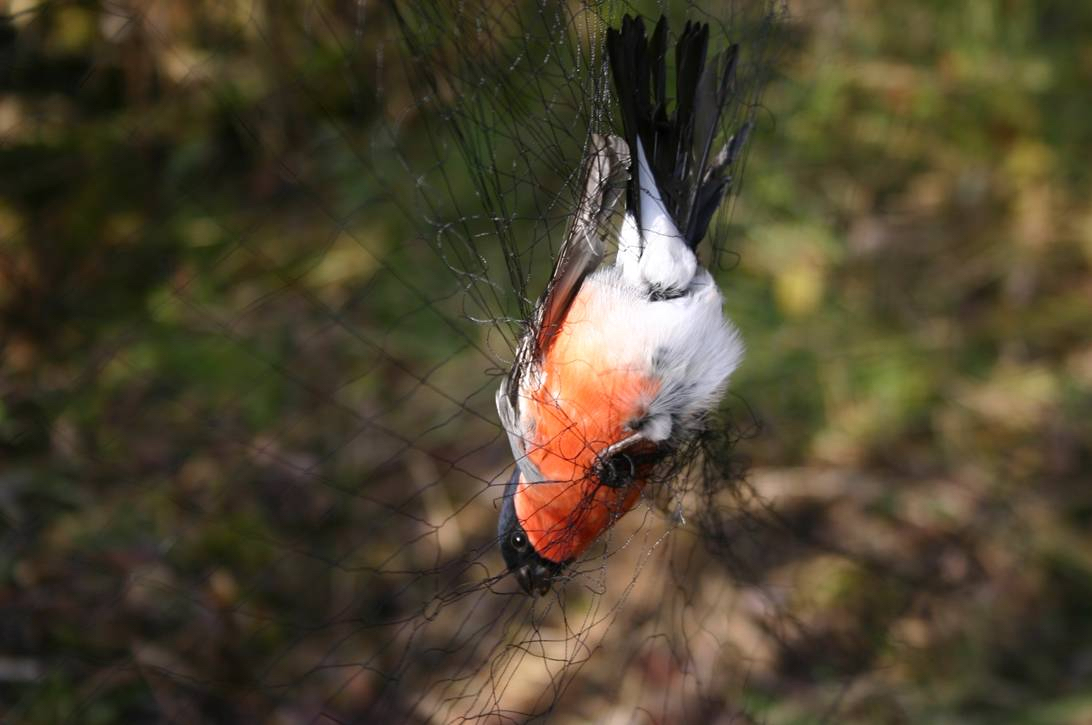The lines of argument between supporters and opponents of fowling were quite clear. The basic idea of the opponents was: birds belong to our environment and contribute to its sustainable functioning. Therefore, the opponents of bird trapping believed that bird life – similar to water or air – was common property. The argumentation of the proponents was somewhat simpler: birds were nice to look at and listen to in the living room, and bird-catching was a hobby of the ‘little man’.
Fowling – like hunting – was supervised by the authorities. Bird catchers needed a hunting licence, which was issued by the district commissioner. But the municipalities also intervened. The municipality of Meyerode, for example, banned trapping on all plots of land belonging to the municipality in 1961. The municipality of Elsenborn did the same and called on the population to stop renting their land to bird catchers. In Bütgenbach, the local council tried to put an end to the practice by increasing taxes on permits.
In the letters to the editor of the Sankt Vither Zeitung, opposition to bird trapping increased. Most of the letters were against bird trapping. Only very rarely did a reader defend the fowlers’ interests. This was probably also due to the fact that only few East Belgians indulged in this hobby. In 1962, for example, the Sankt Vither Zeitung wrote: ‘In the area of the Kehr, on the Belgian side, the bird catchers from the Brussels and Liège area have indulged in their hobby again […]”. (2).
Due to the ongoing legality of fowling in the 1960s, the Belgian state in particular received negative attention for its backward attitude. Although it had banned snares in the early 1960s, and the EU Birds Directive (then: EEC Birds Directive) had banned bird trapping in general since 1979, Belgium did not implement this standard until 1993. However, birds are still caught illegally, year after year, in the Walloon Region.
Belgian fowling regulations had stirred ire in the Eifel as early as the 1930s, as long letters to the editor in the Malmedy-Sankt Vither Volkszeitung prove (3). No wonder, since the people of Eupen-Malmedy, as previous citizens of the German Reich, had been made aware of bird protection by the Reichsvogelschutzgesetz (Reich Bird Protection Act), which banned bird trapping in the German Reich as early as 1908. In Belgium, the first bird protection associations were founded in 1922.
A strong front against bird trapping was then formed from 1968 onwards with the foundation of the bird protection organisation Aves. Supported by citizens’ associations (such as the Komitee gegen den Vogelmord e.V., committee against murdering birds, or Walloon bird-catching opponents), many bird lovers were driven to the fields of the Eifel every weekend to loudly put an end to the practice.
Vitus Sproten
From ZVS, 2018/09, pp. 211-212.
(1): St. Vither Zeitung, Bei den lustigen Frankenthalern, 26 January 1960, p. 3.
(2): St. Vither Zeitung, Die Vogelfänger in Aktion, 11 October 1962, p. 3.
(3): Letter to the editor by J. Heinen in: Malmedy-Sankt Vither Volkszeitung, SOS! Gefahren die uns drohen! Kampf den Vogelfängern, 13 August 1932.

